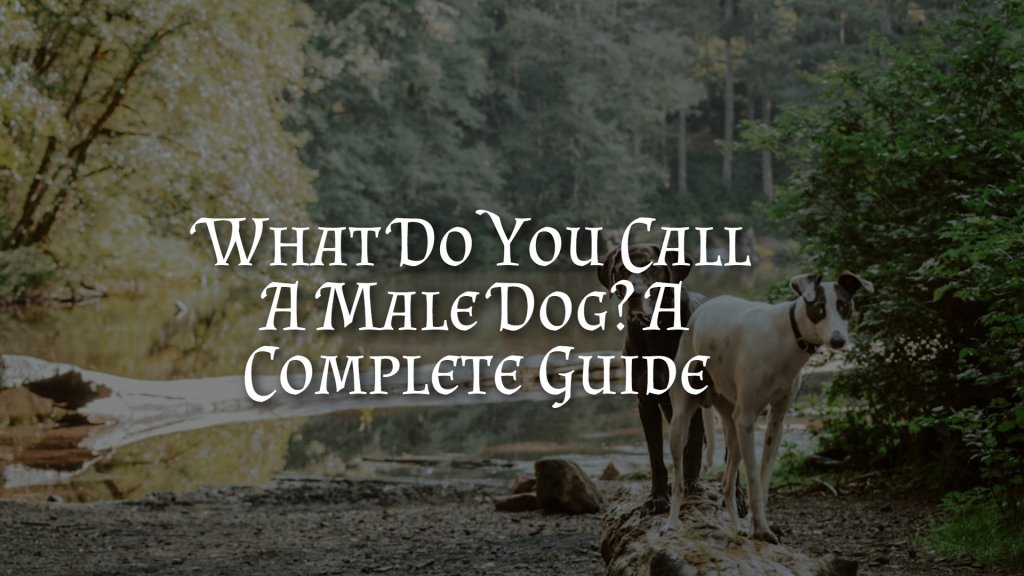In dogs, knowing the correct terms for male dogs isn’t just about words—it’s about understanding their roles and lives. Although we might just say ‘dog’ most of the time, terms like ‘stud’, ‘sire’, and ‘neutered’ are crucial for those who work with dogs professionally. Each word tells us something about the dog’s age, whether it can have puppies and other essential details.
This affects many things, from breeding choices to healthcare. Let’s dig into these terms and see why they matter. Our language for dogs is as complex and fascinating as the dogs themselves.
Male Dog Names countries
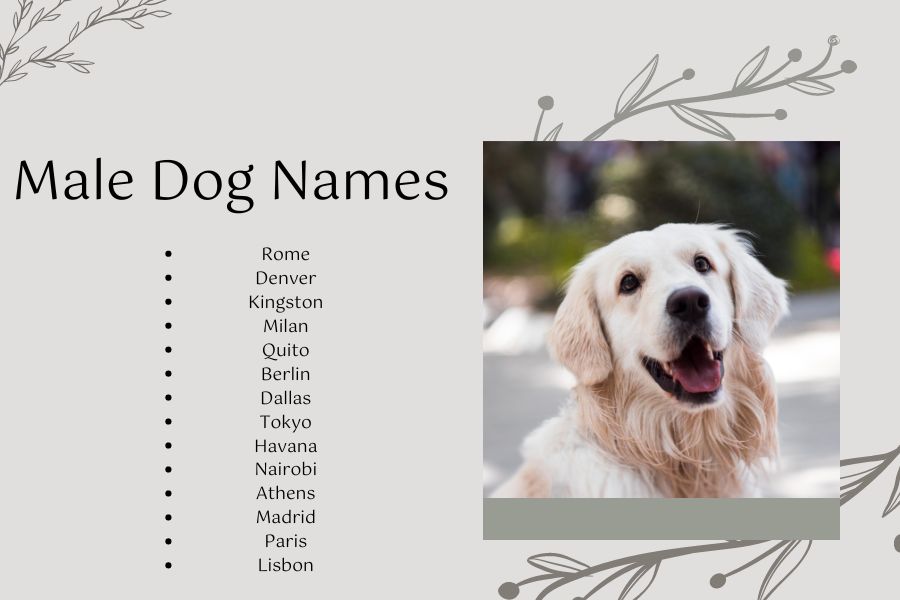
Choosing a name for your male dog inspired by countries gives him a worldly vibe. Each name carries a unique charm, reflecting the culture and essence of that nation. Whether you’re drawn to a country’s history, landscape, or sound, these names are sure to stand out.
- Santiago
- Oslo
- Dublin
- Sydney
- Rome
- Denver
- Kingston
- Milan
- Quito
- Berlin
- Dallas
- Tokyo
- Havana
- Nairobi
- Athens
- Madrid
- Paris
- Lisbon
- Cairo
- Vienna
- Dakar
- Beijing
- Seoul
- Jakarta
- Muscat
- Ottawa
- Tehran
- Prague
Female dog names in different counteries
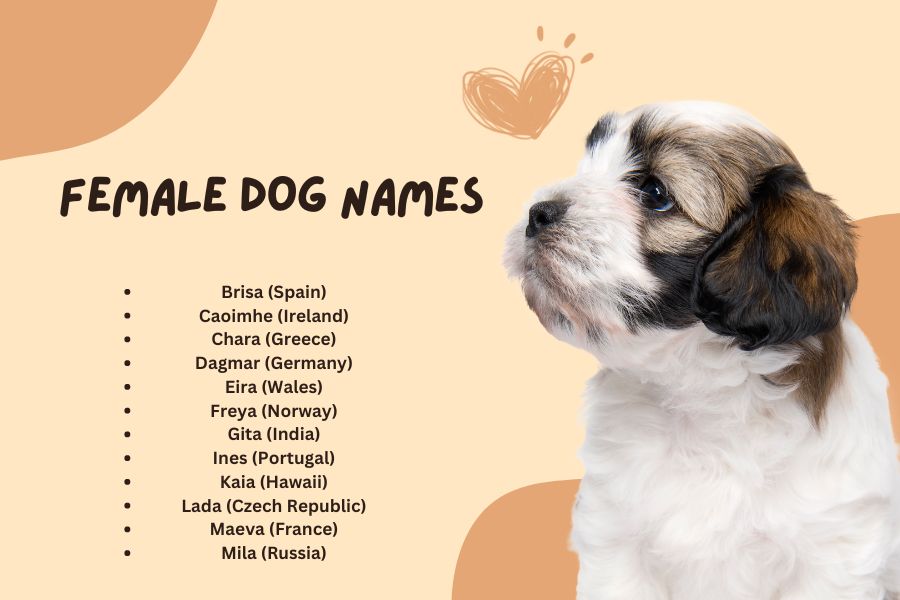
Choosing the perfect name for your female dog can be an exciting journey, especially when exploring names from different countries. Each name carries a unique charm, reflecting its cultural roots. Whether you want something elegant, playful, or bold, these names will add a global flair to your furry friend.
See Also – Japanese Names That Mean Moon: Discover 100 Beautiful Choices
- Aiko (Japan)
- Amara (Nigeria)
- Bella (Italy)
- Brisa (Spain)
- Caoimhe (Ireland)
- Chara (Greece)
- Dagmar (Germany)
- Eira (Wales)
- Freya (Norway)
- Gita (India)
- Ines (Portugal)
- Kaia (Hawaii)
- Lada (Czech Republic)
- Maeva (France)
- Mila (Russia)
- Nara (Brazil)
- Nyx (Greece)
- Petra (Croatia)
- Raisa (Finland)
- Saskia (Netherlands)
- Suki (Japan)
- Thalia (Mexico)
- Valeria (Spain)
- Vesta (Romania)
- Yara (Lebanon)
- Zaria (Nigeria)
- Lena (Sweden)
- Marta (Poland)
- Nika (Slovenia)
- Pia (Argentina)
Standard Terms for Male Dogs
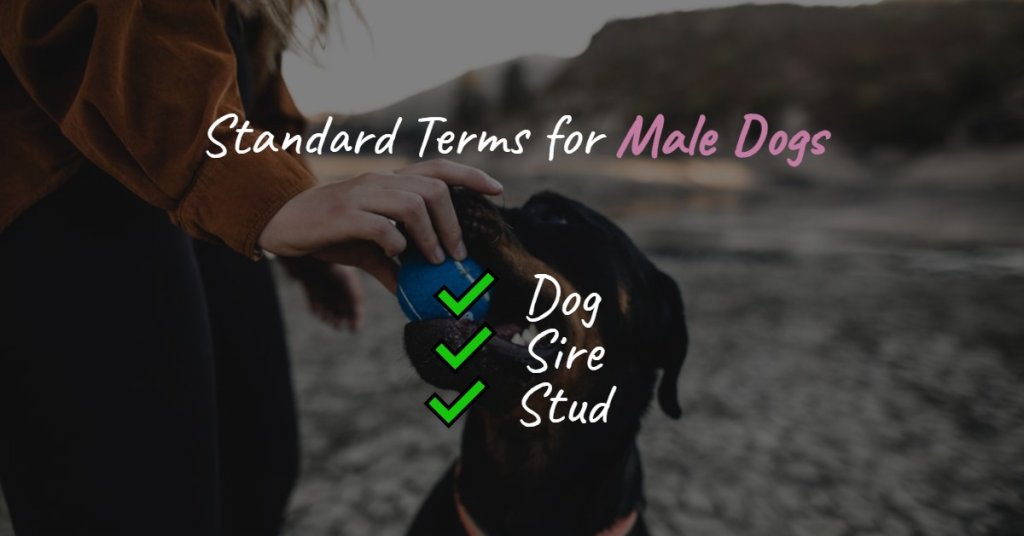
Dog
In the dog world, we usually call a male dog just a ‘dog.’ It doesn’t matter how old he is, what breed he belongs to, or what job he does.
Sure, breeders and dog lovers might have fancy terms for males depending on their role or breeding status, but for most of us, ‘dog’ works just fine. It’s simple.
Sire
When a male dog has puppies, breeders call him a sire. This word just shows he’s the dad. He passes on his genes to the puppies, which matters a lot for maintaining the breed’s quality and for tracking family lines.
Stud
A male dog used for breeding is often called a stud. This label is mainly for dogs that are part of deliberate breeding plans. Although any male dog can be a stud if he has puppies, this title is usually for those with the right qualities and good health, ensuring they pass on significant genes.
Contextual Usage of Terms
When to Call a Male Dog a Sire
A male dog is called a ‘sire’ after he has fathered puppies. This term is used mainly in breeding. Being called a sire means the dog has passed on his genes to his puppies. This helps continue certain desired traits or pedigrees in the breeding world.
When to Call a Male Dog a Stud
A male dog is called a ‘sire’ once he has puppies, but he’s known as a ‘stud’ when he’s ready to breed. This name shows he’s got what it takes to pass on good traits in his breed. Breeders say a dog is a ‘stud’ to show he’s healthy, has good genes, and meets breed standards. So, when they talk about a stud, they mean he’s all set to help keep the breed strong and healthy.
Terms for Neutered and Non-Breeding Males
Neutered Male Dog
Neutered male dogs are often called ‘fixed.’ They’ve had surgery to prevent them from having puppies. Vets say this is good for their health and behavior and helps keep the number of unwanted dogs down.
Companion or Pet Dog
For pet dogs, people often use the term ‘fixed’ when talking about males that have been neutered. If a male dog isn’t meant for breeding, we just call him a ‘dog.’ This simple way of talking makes it clear whether a dog can breed, without getting into the more complex terms used by breeders or dog professionals.
Female Dog Terminology for Comparison
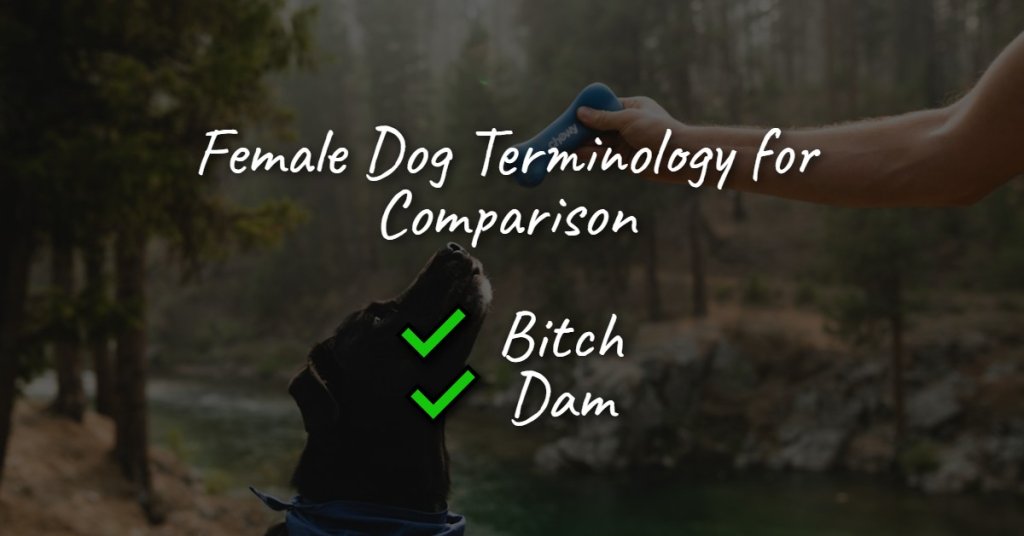
Bitch
The word ‘bitch’ means a female dog. It’s used that way by people who work with dogs. But, when people chat casually, it might mean different things. For male dogs, we often just say ‘dogs’. If we’re talking about breeding, we might call them ‘sire’ or ‘stud’.
Dam
The word ‘bitch’ refers to a female dog. We use ‘dam’ for a female dog that has had puppies. This term is important in breeding and tracking family lines. It highlights the female dog’s role in passing on traits and qualities to her puppies, which is crucial for maintaining or improving breed standards.
Terms for Young Dogs and Puppies
Puppy
Puppies are young dogs. We call them puppies until they are about a year old. This time is crucial for them. They grow a lot and learn how to behave. During puppyhood, they learn about the world, which helps them become good adult dogs. It’s important because it shapes how they’ll act and adapt later on.
Whelp
A whelp is a young dog, usually less than a year old. Breeders and vets commonly use this term to describe puppies from when they’re born until they stop nursing. Knowing this word helps professionals talk clearly about the puppies’ age and growth stage.
Specialized Terms in Different Contexts
Police Dogs
Police dogs, also known as K9 units, are essential in law enforcement. They’re trained to sniff out drugs, find missing people, detect bombs, and help catch suspects. These dogs have special skills that make them great partners for police officers, improving the quality and safety of police work.
Service Dogs
Service dogs are trained to help people with disabilities. They do specific jobs based on their owner’s needs. These dogs are more than just pets; they’re vital for performing daily tasks, moving around freely, and staying safe. Some are called guide dogs, hearing dogs, or mobility assistance dogs, which tells you what they do.
Cultural Variations in Naming Male Dogs
All over the world, people call male dogs different names based on their culture and language. For example, in Spain, people usually say ‘perro’ for a male dog.
In Japan, the word is ‘osu.’ Understanding these different names helps us understand how various cultures view and relate to their dogs.
International Names for Male Dogs
People name male dogs in different parts of the world based on their traditions and languages. For instance, in Japan, a common name for a male dog is ‘Kotaro,’ which translates to ‘small boy.’ In Italy, many choose the name ‘Fido,’ which means loyalty. These names are more than just tags; they reflect what each culture values and cherishes.
FAQs
At what age is a male dog considered a stud?
A male dog is usually called a stud when he’s about 6 to 12 months old. But if you want to breed responsibly, waiting until he’s older is better. This gives him time to grow fully and get all the necessary health checks. Waiting helps keep the breed healthy and upholds good breeding standards.
Can any male dog be called a sire?
A male dog that has fathered puppies is called a sire. This term is often used when talking about pedigreed or purebred dogs in breeding. It’s important to know that not every male dog is a sire. Only those that have had puppies are called this.
Is it offensive to use the term “bitch” for female dogs?
When talking about male dogs and breeding, it’s worth discussing if the term ‘bitch’ for female dogs is offensive. In professional circles, like breeding, ‘bitch’ is the standard word for a female dog. But, in everyday talk, the word can come off as derogatory because it’s often used as an insult.
Conclusion
In conclusion, the way we talk about male dogs changes depending on whether they breed, where we are, and their role in the dog world. Knowing terms like ‘dog,’ ‘stud,’ ‘sire,’ and ‘fixed’ helps us communicate better and show respect in different situations involving dogs.
This guide helps you use the right words when talking about male dogs, whether you’re hanging out with dog owners or working with dogs professionally. It’s all about making sure we understand and respect our furry friends.
Ryan Dunn has a bunch of certificates on his desk. A few are awards for content production and marketing. Ryan still seeks to achieve. He would like to be a faster runner and higher jumper. He wants to read more books while somehow watching all the Cubs games possible. He would like to produce more written words–though not in this bio.

